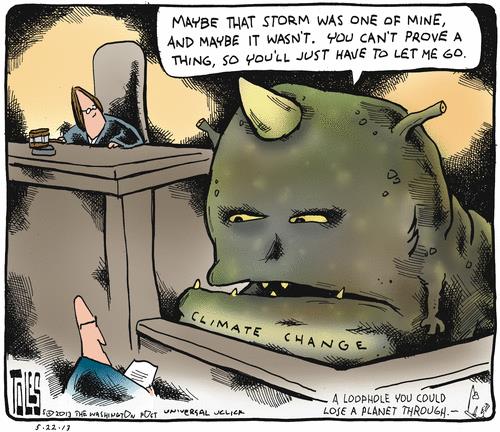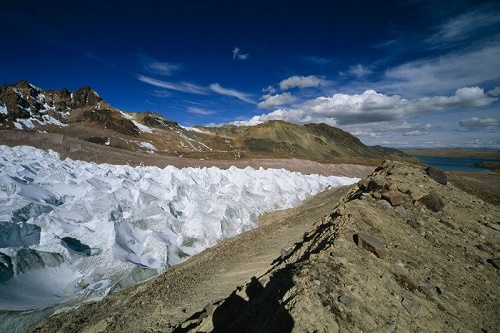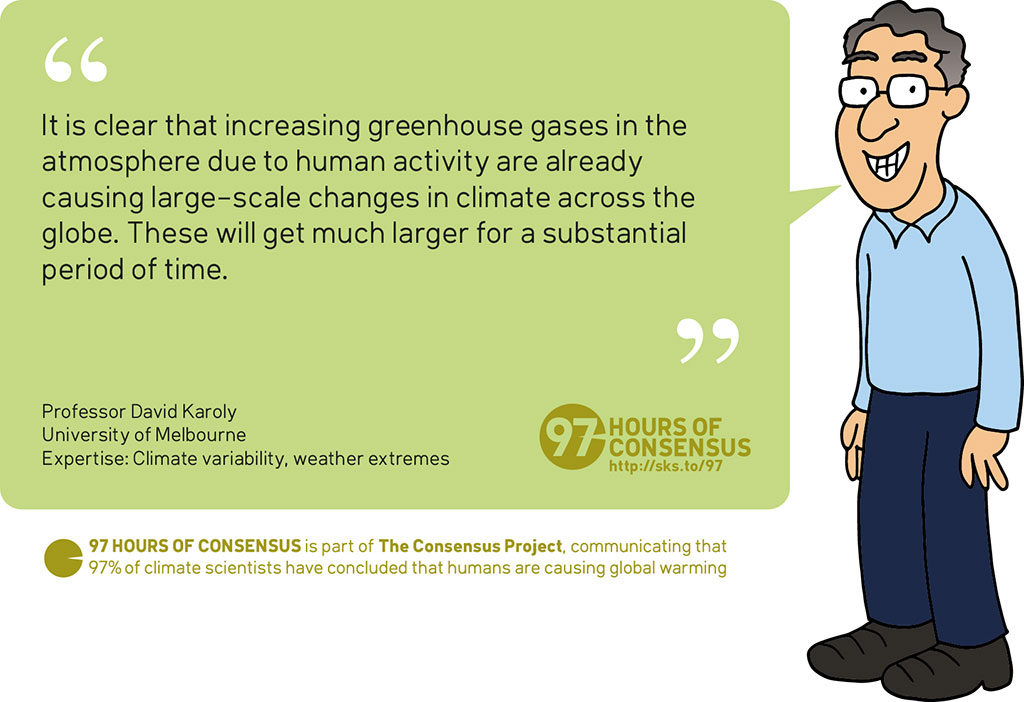2016 SkS Weekly Climate Change & Global Warming Digest #42
Posted on 16 October 2016 by John Hartz
Story of the Week... SkS Highlights...La Niña Update... Toon of the Week... Quote of the Week... Graphic of the Week... SkS in the News... SkS Spotlights... Video of the Week... Coming Soon on SkS... Poster of the Week... SkS Week in Review... 97 Hours of Consensus...
Story of the Week...
Update 15/10/16 — A deal was agreed by almost 200 countries on 15 October 2016. The agreement means that developed countries will start to limit their use of HFCs by at least 10% from 2019. The complex deal also ensures that many developing countries, such as China and some in South America, will freeze their HFC use from 2024. Other developing nations, such as India, Pakistan, Iran, Iraq and the Gulf states, will not freeze their use until 2028. By the late 2040s, all countries are expected to consume no more than 15-20% of their respective baselines. Countries also agreed to additional funding, but the exact amount will be agreed at the next meeting in Montreal in 2017.
Explainer: Why a UN climate deal on HFCs matters by Sophie Yeo, Carbon Brief, oct 10/15/ 2016
SkS Highlights...
The video, Trailer: Before the Flood, by natgov.tv garnered the highest number of comments of the items posted on the SkS website during the past week. Before the Flood is a movie documenting Leonardo DiCaprio meetings with scientists, activists and world leaders to discuss the dangers of climate change and possible solutions.
La Niña Update...
What a difference a month can make! Since my last post, the tropical Pacific has changed gears, and now forecasters think there’s a 70% chance that La Niña conditions will develop this fall. However, any La Niña that develops is likely to be weak, and forecasters aren’t quite as confident that La Niña conditions will persist long enough to be considered a full-blown episode, giving it a 55% chance through the winter.
Antici...pation: October 2016 ENSO forecast by Emily Becker, NOAA's Climate.gov, Oct 13, 2016
Toon of the Week...

Quote of the Week...
Dr. Pelto said the Porcupine iceberg is a dramatic reminder that glaciers are in such rapid retreat because of climate change.
“It’s just a highlight example of what’s happening,” Dr. Pelto said. “I could list 100 glaciers that are doing a similar thing in terms of the rate of retreat in the last 20 years, that are within a couple hundred miles of that location. And so it is just one example.”
Breakage of monumental B.C. iceberg quietly sounds climate change alarm by Mark Hume, Globe & Mail. Oct 12, 2016
Graphic of the Week...

On the run Carsten Peter/National Geographic Creative
Ancient Andes glaciers have lost half their ice in just 40 years by Chelsea Whyte, New Scientist, Oct 10, 2016
SkS in the News...
Skeptical Science is one of the 16 Good Practices Apps provided by the MASS project. (For details about the MASS project, see the Highlights section of this Week Digest.)
In his New York Times article, Katharine Hayhoe, a Climate Explainer Who Stays Above the Storm. John Scwartz writes:
She (Katharine Hayhoe) urges her audiences to visit sites like SkepticalScience.com, which debunks denialist arguments. She tells them that climate science is actually some 200 years old, or that recent temperatures in Australia were so high that the government weather service had to introduce new colors (deep purple and pink) on its maps just to convey heat up to 129 degrees Fahrenheit. “Isn’t that crazy?”
SkS Spotlights...
So how can we make science education more attractive and accessible for students? This is the main question in the Motivate and Attract Students to Science (MASS) project.
We found that issues of sustainable environmental education lend themselves particularly well for this purpose since they provide the motivational advantage of relating to students everyday live, are often subject of the public discourse and provide direct links to different science disciplines, enabling cross disciplinary interactions including not only the sciences but also the human dimension.
Eight countries (Czech Republic, Poland, Estonia, Latvia, Germany, Greece, Cyprus and The Netherlands) combined their expertise and joined forces to find answers to this question. Good practices from all countries were collected and analysed and are now disseminated throughout Europe. The MASS-project hopes to support teachers in their endeavor to provide attractive and motivating approaches in teaching science, which will hopefully help to make the student’s learning experience in science more relevant, fun and accessible.
Video of the Week...
How dead is denial? Stefan Rahmstorf and Michael E. Mann talk about denial and the science of climate change.
Coming Soon on SkS...
- Finance for Deep-Rooted Prosperity is Coming (Joseph Robertson)
- Hurricanes, floods, drought, and heat courtesy of climate change (Dana)
- Global weirding Episode 2 (Katharine Hayhoe)
- Guest Post (John Abraham)
- Climate change could push risk of ‘megadrought’ to 99% in American southwest (Robert McSweeney)
- 2016 SkS Weekly Climate Change & Global Warming News Roundup #42 (John Hartz)
- 2016 SkS Weekly Climate Change & Global Waming Digest#42 (John Hartz)
Poster of the Week...

SkS Week in Review...
- 2016 SkS Weekly Climate Change & Global Warming News Roundup #42 by John Hartz
- Climate scientists published a paper debunking Ted Cruz by John Abraham, (Climate Consensus - the 97%, Guardian)
- Hillary Clinton and Al Gore talk climate and energy in Miami by RBC Network Broadcasting
- Explainer: Paris Agreement on climate change to ‘enter into force’ by Sophie Yeo (Carbon Brief)
- Trailer: Before the Flood by natgov.tv
- Caring for Creation makes the Christian case for climate action by John Abraham, (Climate Consensus - the 97%, Guardian)
- 2016 SkS Weekly Climate Change & Global Warming Digest #41 by John Hartz
97 Hours of Consensus...

Quote derived with permission from author from:
"It's clear that human-caused changes in climate change, particularly due to the increases in greenhouse gases in the atmosphere, will get worse for a substantial period of time. And we know that increasing greenhouse gases in the atmosphere are causing large-scale changes in temperature, so increasing the temperatures around the globe."































 Arguments
Arguments






























Comments